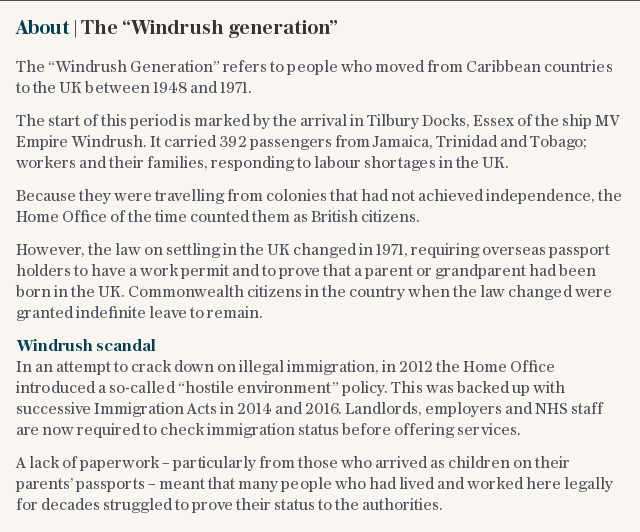‘Fed up’ tech entrepreneurs put off Britain by visa delays

Britain is losing the battle to attract the tech entrepreneurs needed to build a world-beating sector because the visa system is too slow and complex, Parliament has been told.
The Government wants to attract global hot-shots to boost the burgeoning industry in the UK, but its efforts are bumping up against the tough visa system which is in part designed to push net immigration down.
“Entrepreneurs are becoming very concerned and are not coming or are not staying, and are experiencing problems with having to apply for visas,” the City of London Corporation’s Catherine McGuinness told the Lords’ European Select Committee.
“That process is difficult, people are getting very fed up with that and they are ringing home and saying, ‘I thought it was great to come to London but it is such a bore getting the visa'."
It comes as the Home Office is under fire for its treatment of the Windrush generation from the Caribbean, who were invited to the UK as citizens but later had their paperwork destroyed and were threatened with deportation.

Carolyn Fairbairn, head of the Confederation of British Industry, told the peers it is vital for the economy that the target of reducing net migration to below 100,000 per year is abandoned.
She said it is “creating all sorts of distortions” and locking much-needed workers out of the UK economy.
“We are seeing that engineers can’t come in to the country. And the reason for that? We’ve got fewer nurses coming from the EU so we have more coming from outside, and they are using up all of the visas,” said Ms Fairbairn.
“That is madness for our economy. We need to be talking about all skill levels. The idea of moving away from a net migration target is very very important.”

The latest figures from the Office for National Statistics show net migration stood at 244,000 in the 12 months to September 2017, down from 273,000 in the previous year and from 322,000 in the 12 months before that.
Of that, EU citizens accounted for 90,000 and non-EU citizens 205,000, while net emigration of Britons slowed a touch to 52,000.

 Yahoo Finance
Yahoo Finance 